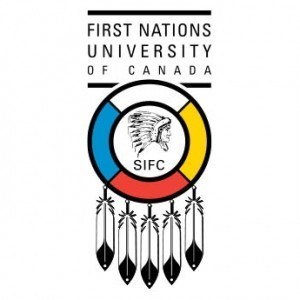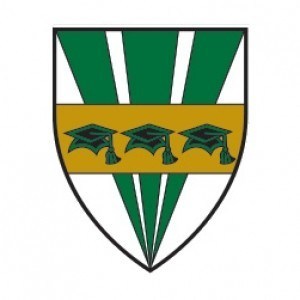The Bachelor of Administration degree offers students the option of specializing in several core concentration areas. Within the degree, students have the option to specialize (Major) in accounting, entrepreneurship, finance, human resource management, international business, management or marketingEach area of specialization has been carefully designed in order to ensure the highest standard of quality and relevance.This program could prepare students for careers in accounting, entrepreneurship, marketing, human resources or public relations, to name a few.
Field of study: Business Administration and Management, General
The Administration program at First Nations University of Canada is designed to provide students with comprehensive knowledge and practical skills necessary for effective leadership and management within various organizational contexts. This program emphasizes the development of a strong understanding of business principles, organizational behavior, strategic planning, and administrative law, tailored specifically to serve and support Indigenous communities and organizations. Throughout the course of study, students are introduced to fundamental concepts in financial management, human resources, project management, and ethics, enabling them to make informed decisions that promote sustainable development and cultural integrity.
The curriculum combines theoretical coursework with experiential learning opportunities, including internships, community projects, and case studies that reflect real-world challenges faced by Indigenous organizations. This approach ensures that graduates are equipped with both academic knowledge and practical expertise, ready to assume leadership roles in government agencies, non-profit organizations, and business enterprises serving Indigenous populations. The program also emphasizes the importance of cultural competence, respectful communication, and collaborative problem-solving, preparing students to operate effectively within diverse cultural settings.
Students in the Administration program will explore topics such as governance structures, community development, policy analysis, and Indigenous business practices. They will learn how to navigate the unique legal and organizational frameworks that influence Indigenous administration. Through coursework, students will also develop skills in strategic decision-making, data analysis, and conflict resolution, which are critical for leadership success in complex organizational environments.
The program aims to foster a strong sense of social responsibility and ethical practice, encouraging students to serve their communities with integrity and respect for Indigenous traditions. Graduates of the Administration program will be well-prepared for careers in administrative leadership, policy development, program management, and community advocacy. They will have the analytical tools necessary to assess organizational needs, implement effective solutions, and contribute positively to the growth and well-being of Indigenous nations and communities.
With a dedicated faculty experienced in Indigenous issues and management, the First Nations University of Canada ensures that students receive personalized mentorship and support throughout their academic journey. The program also offers networking opportunities with Indigenous leaders and professionals, providing valuable connections that can aid in career advancement. By completing this program, students will join a community of committed individuals dedicated to improving organizational effectiveness and promoting Indigenous self-determination through innovative administration practices.
Program Requirements:
The Administration program at the First Nations University of Canada is designed to prepare students for leadership roles in various organizational settings, with an emphasis on Indigenous perspectives and community-based approaches. To successfully complete the program, students must fulfill a comprehensive set of coursework, experiential learning components, and possibly some practical requirements, depending on the specific curriculum structure.
Students are generally required to complete a minimum of 120 credit hours over the course of their studies. The curriculum includes foundational courses in organizational management, principles of administration, and leadership theories. Courses such as Introduction to Business Management, Indigenous Governance, and Community Development form the core of the program, providing students with essential knowledge about organizational structures, policy development, and community engagement.
In addition to core coursework, students are expected to engage in a series of electives that allow for specialization in particular areas of interest, such as non-profit management, public administration, or economic development within Indigenous contexts. Practical experience is also a key component of the program; students may be required to participate in internships or cooperative education placements with local organizations, governmental agencies, or Indigenous governing bodies. These placements aim to provide hands-on experience and foster real-world skills, including communication, strategic planning, and problem-solving.
The program may also include seminars, workshops, and case studies that promote critical thinking and application of theoretical knowledge to practical scenarios. There is often a capstone project or final thesis that synthesizes learning and demonstrates competencies in organizational analysis, project management, and leadership.
Students are expected to meet academic standards set forth by the university, including maintaining a minimum GPA of 2.0 (on a 4.0 scale). Additionally, students must fulfill any community service or engagement activities as part of their graduation requirements, emphasizing the program's focus on community development and Indigenous leadership.
Language of instruction is primarily English, and students should possess adequate language proficiency to engage fully with coursework and participate in discussions. Students are advised to consult the official university catalog or program guide for detailed course descriptions, prerequisites, and specific admission criteria. The program aims to produce graduates equipped with practical skills, cultural awareness, and leadership capabilities to contribute meaningfully to Indigenous and broader communities.
The First Nations University of Canada offers a range of financial support options to assist students enrolled in their Administration programs. Funding opportunities include scholarships, bursaries, and grants specifically tailored for Indigenous students as well as general financial aid options. Students are encouraged to apply for these opportunities early, as many are awarded on a competitive basis and require demonstrating financial need or academic achievement. The university also provides information on government funding programs, including federal and provincial student loans, which can significantly offset the cost of tuition and related expenses. Additionally, some students may qualify for work-study programs that allow them to earn income while gaining work experience relevant to their field of study. The university’s financial aid office provides personalized guidance to help students navigate these options and complete necessary application processes. Furthermore, the university promotes awareness of external funding sources, including Indigenous-specific scholarships offered by organizations such as the Union of Saskatchewan Indians or the Saskatchewan Indian Equity Foundation. International students interested in Administration programs should explore relevant scholarships and funding opportunities available for non-resident students. Cost of attendance varies depending on residency status, course load, and living arrangements, so students are advised to develop a comprehensive financial plan before commencing their studies. Overall, the First Nations University of Canada is committed to making education accessible and affordable, striving to reduce financial barriers through a variety of financial supports tailored to meet diverse student needs.
The Bachelor of Administration program at the First Nations University of Canada is designed to prepare students for leadership roles within Indigenous communities, government agencies, and private sector organizations. This comprehensive program emphasizes a deep understanding of administrative principles, Indigenous governance, and the socio-economic challenges faced by First Nations populations. Students undertake coursework in areas such as organizational management, public policy, Indigenous law, and community development, gaining both theoretical knowledge and practical skills. The program aims to foster leadership qualities and strategic thinking, ensuring graduates can effectively address issues related to Indigenous sovereignty, cultural preservation, and economic development. Additionally, the curriculum is often tailored to incorporate Indigenous perspectives, methodologies, and traditions to promote culturally relevant education. Students may have opportunities for internships, community projects, and engagement with Indigenous leaders to enhance their experiential learning. The program typically spans four years, culminating in a Bachelor's degree that equips graduates with the competencies necessary for impactful careers in administration, policy analysis, and community planning. The interdisciplinary approach ensures students are prepared to navigate complex institutional systems while respecting Indigenous values and knowledge. The First Nations University of Canada is committed to supporting Indigenous students through dedicated services, resource centers, and culturally sensitive academic advising, which further enriches the educational experience. Graduates from this program are well-positioned to serve as administrators, policy makers, and advocates within Indigenous governments, organizations, and broader society, contributing to the empowerment and sustainable development of First Nations communities.

